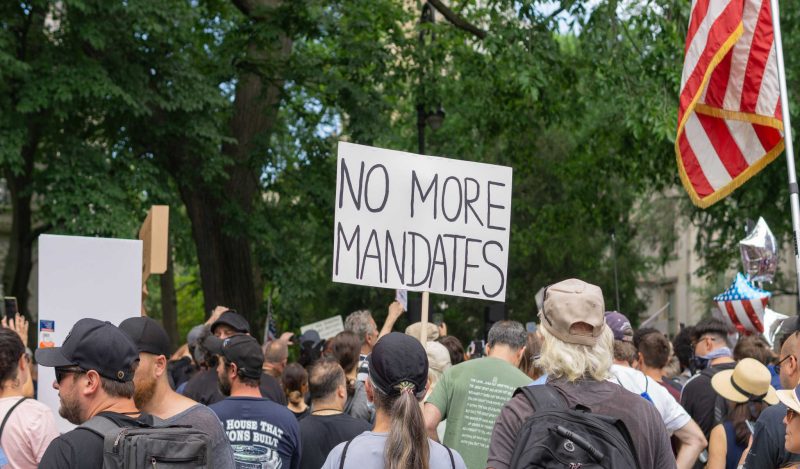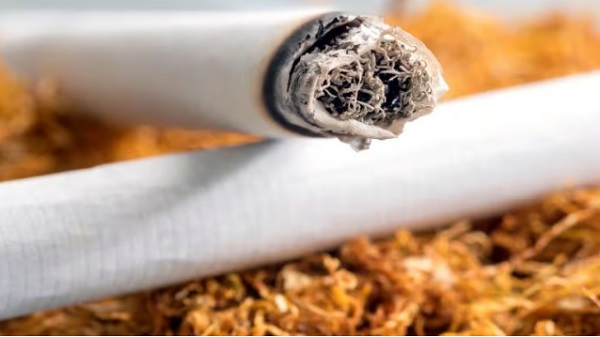These measures should include generic medicines that have been dismissed by the mainstream medical community and media.
While Americans across the ideological spectrum wish the president recovery, we must take this moment to acknowledge that a strategy blindly focused on vaccinations is not getting the job done.
Don’t take my word for it. Use Biden’s own standard for success. Exactly one year before testing positive, the President declared, “You’re not going to get COVID if you have these vaccinations.” Back then, the seven-day average of new cases in the United States was around 50,000. Today, that number is estimated to be between 300,000-500,000 when considering ubiquitous and uncounted home testing, despite two-thirds of the population considered “fully vaccinated” by the CDC.
Yet the push for vaccines from the administration has continued unabated. Following Biden’s diagnosis, the White House tried to take a political victory lap. In their first press briefing following news of the diagnosis, White House press secretary Karine Jean-Pierre stressed the president’s vaccination status as, “what’s most important here.”
As a lifelong Democrat and medical doctor who has helped more than 700 patients recover from COVID-19 and its complications, I have seen the effectiveness of other treatment options with my own eyes. Take for instance, fluvoxamine, an inexpensive generic medicine typically associated with depression treatment. It costs $4 per pill, is readily available at pharmacies, and has demonstrated an effectiveness combating COVID-19 in large, randomized, controlled trials published in the Journal of the American Medical Association and the Lancet.
Yet two years after this data appeared, fluvoxamine is still getting the cold shoulder from the medical gatekeepers. Both the World Health Organization (WHO) and National Institutes of Health do not recommend its use against COVID-19.
Furthermore, medical professionals who deviate from the party line are callously dismissed by mainstream media outlets such as NPR, as “fringe medical doctors, natural healers and internet personalities ready to push unproven cures for COVID.”
Science and medicine are always changing for the better. Consider the incredible shifts in the landscape that occurred between the current president contracting the novel coronavirus and his predecessor. In October 2020, there were limited options available for President Donald Trump. Less than two years later, a nearly 80-year-old president was presumed to be on a path toward recovery on the day of his diagnosis.
Progress is a wonderful thing, but it’s only possible with an attitude of open-mindedness that challenges the status quo. Doctors and innovators should be incentivized to pursue and explore new and different approaches. Instead, we are being forced to adopt a group think or risk suffering the wrath of the establishment, or worse, loss of livelihood.
The powerful American Board of Internal Medicine, a sprawling organization with certification authority, has been issuing threatening letters to board-certified physicians with exemplary careers, accusing them of “misinformation” when their public assessments of the efficacy of generic, repurposed therapies contradict those of federal health agencies.
To be sure, demonstrably false “misinformation” can be dangerous, and a topic worthy of discussion. But with overwhelming evidence to support the statements in question, advocating different courses of action toward COVID-19 is far from misinformation. In fact, the suggestion from the White House that the vaccine lessened Biden’s symptoms more closely meets the standard for misinformation since it is an impossible standard to prove.
Of all people, Biden should be open to new ideas. He was elected with a clear mandate to implement a fresh approach toward the pandemic. Two summers ago, he castigated his predecessor, saying, “the president still does not have a plan.” He went on to say, “More than 170,000 Americans have died — by far the worst performance of any nation on Earth.”
Today, that number has — sadly — topped 1 million. Many more lives have been lost on this president’s watch than the last one. These are sobering statistics. Biden has fallen short of promise to “shut down” the virus.
It’s clear COVID-19 is going to be with us for the foreseeable future. How we address it is up to us. Now is the time for a change in approach. Let’s hope our elected leaders and medical professionals take heed.



















